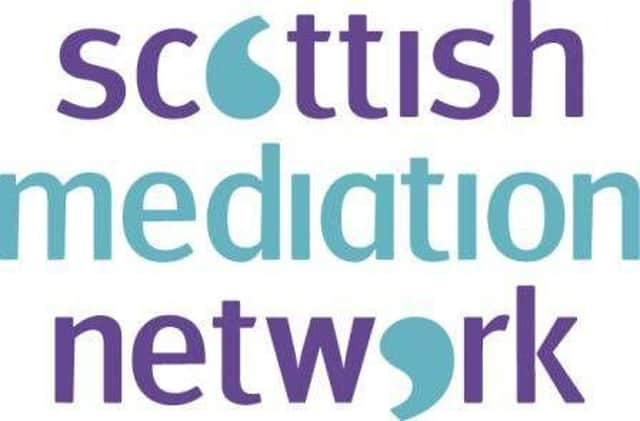Teach children mediation and see a workplace revolution


The conference was in Dundee and it was a gathering of 100 peer mediators from schools across Scotland arranged by Young Talk, Scottish Mediation’s initiative to build a network of schools which promotes the use of mediation amongst their students.
Having owned up to silver hair I might as well also own up to close to three score years and ten for reflections. Would I change anything? Not much. I had an enviable career working in the housing association movement through two revolutions: one in social housing and the other in the way we support older and disabled people in their own homes rather than institutional care.
Advertisement
Hide AdAdvertisement
Hide AdBut one thing I would do if I could take a time machine back 40 years is to take a mediation skills training course.


The reason for wishing to do this early on in life is not that I would have wished to work as a mediator then but to be able to apply the skills of mediating in everyday situations.
So often in our daily activities, whether at work or at home, we set one set of ideas against another. We then put them (ideas and people) to the test of which, or more often who, is right. Win-lose is the name of most of the games of life. Mediation shows us there is a better way, not by asking who is right but by using our skills of listening and questioning to learn more and understand more so we can reframe the dilemma from all the parts of our new understanding and create a fresh, and often creative, way forward.
I now know that if I could have my career in housing and community care again there are many situations when I might have used a mediating way to advantage.
It is not just the big challenges at work that would have benefitted from a mediating mindset but all the small contacts about seemingly inconsequential issues. A work culture underpinned by mediating ways is not about making it a place of uncritical harmony. It is about putting difference, diversity and, yes, even conflict to work more effectively and more creatively, where it can flourish constructively and not destructively.


So why was I so inspired by a conference about school students becoming peer mediators? I have been thinking for some time that we should be promoting a culture of mediating ways in our workplaces, and particularly in developing the leaders of tomorrow.
But this is far too unambitious; what the peer mediation conference demonstrated was that the place to introduce the culture of mediating ways is in our schools. In the words of one peer mediator she now “sees how other people think, their way and their perspective, what one person says and what another person says, and that not everyone thinks the same as you, and everyone’s different”.
For more than two decades the Scottish Mediation Network has been the umbrella body for promoting mediation and setting standards for mediators in Scotland.
Advertisement
Hide AdAdvertisement
Hide AdUnder our new name of Scottish Mediation, we are equally keen to take forward the ethos of mediating ways as part and parcel of our Scottish cultural development at work, in the home, and yes, at school.
Peer mediation in schools is certainly the ideal place to start in order to bring about a revolution in how we deal with conflict, but as we cannot all go back to school to do our learning there are enormous opportunities in mediating ways aligning with a coaching style of management to create a revolution in the workplace which makes them fit places for 21st-century enterprises.
Interested? Why not contact us at Scottish Mediation by making our new website at www.scottishmediation.org.uk your next port of call and perhaps find out more about the skills of mediation by joining us at our conference, “Creating the Space”, on 2 December.
Robin Burley MBE is the Chair of Scottish Mediation and an independent mediator and business coach.